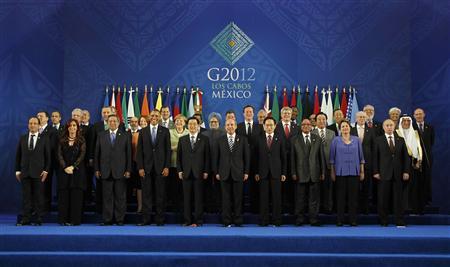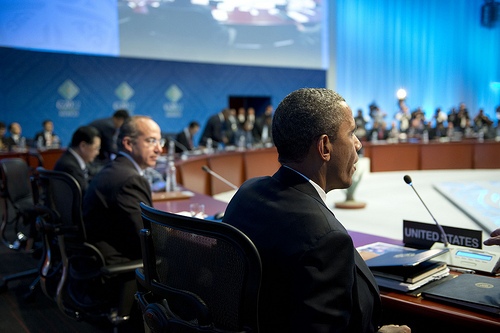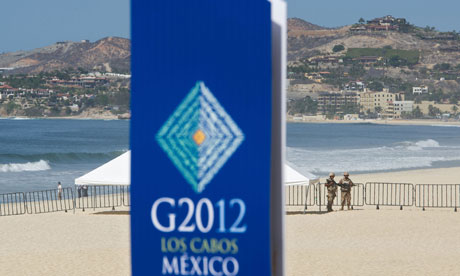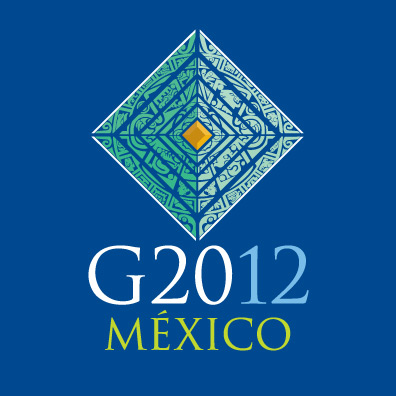 After a hurried return flight to Toronto, via San Francisco, I was trying to gather my thoughts and reflections on this last G20 Summit in Los Cabos. But before I could get there before I was “assaulted” by a piece from David Rothkopf currently the CEO and editor at large of Foreign Policy – “For Multilateralism, Is This the Dark Moment Before the Dawn?” This piece is the latest and clearest instance of what I call “opinionation” – or in other words – opinion without much knowledge or data. Not that I am suggesting that David does not know about multilateralism. Far from it (I guess I am saying he should know better).
After a hurried return flight to Toronto, via San Francisco, I was trying to gather my thoughts and reflections on this last G20 Summit in Los Cabos. But before I could get there before I was “assaulted” by a piece from David Rothkopf currently the CEO and editor at large of Foreign Policy – “For Multilateralism, Is This the Dark Moment Before the Dawn?” This piece is the latest and clearest instance of what I call “opinionation” – or in other words – opinion without much knowledge or data. Not that I am suggesting that David does not know about multilateralism. Far from it (I guess I am saying he should know better).
Indeed David was a major official in the Clinton Administration in Deputy Under Secretary of Commerce for International Trade Policy and Development. And he has been significantly involved in the beltway foreign policy crowd. Furthermore David wrote his weekly column from Rio de Janeiro as he awaits the Rio+20.
So what is the analysis about? David is not just examining the success/effectiveness of the “high table” of global summitry – the G20 Leaders Summit; he is reflecting on a wider swath of global summitry architecture though he employs the older term “multilateralism”. He starts out commenting on the Rio+20, which Rothkopf is attending. He says: “I am now attending, an event that is likely to be both one of the largest and least consequential in the history of the United Nations.”
But he then takes aim on global summitry more generally:
Our problem is not that the biggest powers are incapable of action to address current problems. It’s that just when the promise of a new post – Cold War, post single power era of collaboration among nations seemed to be greatest, many of the big powers have revealed themselves to be unwilling to assume the responsibilities of true global leadership – of motivating, cajoling, inspiring, intimidating, confronting or blocking actions by other powers. It’s not so much that we are in a G-Zero world [a term adopted and adapted from Ian Bremmer of the Eurasia Group] as it is the most of our leaders are zeroes.
And having identified “leaders” as the operative agent of failure he then frames the G20 Summit’s outcome this way:
One sign of this [this is the failure of President Obama] is the G-20 meeting in Los Cabos this week, which has an official agenda that is almost laughably remote from the big issue sof the day. In the past year, the group has played a much smaller role than was envisioned at the height of the financial crisis – a reality that will be underscored as the reactive, last-minute agenda to address Europe’s continuing crisis dominates the meeting, mostly through a flurry of bilateral leader conversations on the perimeter of the official event.There will be strong language, lectures to Europeans and pushback from them, signs of the deepening tensions between the United States and Russia, … and then will shift the main venue for addressing the global economic crisis back to the G-7, the European Union itself, and the other fora that have supplanted the unwieldy G-20 over the past three years.
While David attacks all current multilateral settings he concludes with the position that things will get so bad that ultimately “Multilateralism will ultimately flourish not because it is more equitable but because we cannot solve global problems without it.”
Well I certainly agree with the final conclusion, I am not sure when that dire turning point will come. Furthermore I think the evidence he draws on fails to see adequately the current multilateral efforts in tackling the challenges. Multilateralism is hard, messy and often achingly incremental. But let me suggest that the evidence leads to a different evaluation than that proffered by David.
First on Rio+20. We have known for a long time that the universal model presented by the UN is an unworkable ineffective structural approach. The legitimacy advocates claim that the universal model is the only mechanism – indeed I heard French President Hollande at his final press conference at Los Cabos advocating for the UN – I guess it is part of French Socialist equity. And of course he was at a G20 Leaders Summit. But there is no surprise with Rio+20 other than possibly there is likely to be an agreement at all. Given that President Obama and his people were well aware of the results, it is no surprise that Obama and other leaders are taking a pass on this gathering.
But the existence of the G20 – the G7 before it – is no accident. These informal multilateral institutions appeared exactly because of the failure of the universal treaty- defined institutions. The legitimists will never go away – nor will their call for universal representation – but for effective multilateralism you will have to look elsewhere.
Now for the G20. The critique by David of the Los Cabos meeting probably requires a longer answer than I’ll give here but let me suggest that a reading of the Los Cabos Declaration and the Action Plan suggest more forward work than David Rothkopf acknowledges. The structure of global summitry is well beyond the Leaders getting together for less than 48 hours. There is forward movement – assessments, plans, targets – by the G20 countries. But it is not just the announcements by Leaders. It is in the meetings, reports, and draft standards of the many tasked organizations.
But speaking of announcements – the statements by Leaders – especially China’s President Hu Jintao (see the written interview with Reforma) – his urging on the G20 to act collectively – from a Chinese leader – suggests that the leadership takes the collective behavior seriously. Are these perfect leaders. Nope. Do they bend to domestic pressures more than they should – probably – whether it’s Merkel or Obama or whomever. But they are definitely not zeroes. Way too easy and rather flippant, David Rothkopf.
I buy the Leaders commitment from the Los Cabos Declaration:
Despite the challenges we all face domestically, we have agreed that multilateralism is of even greater importance in the current climate, and remains our best asset to resolve the global economy’s difficulties.
A huge success – no – but multilateralism – or global summitry – in action and the best means for overcoming the challenges – and it is happening now.
Image Credit: Seacoast Properties



